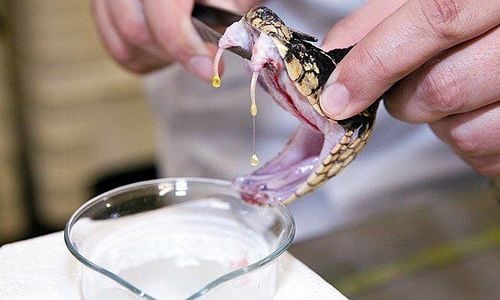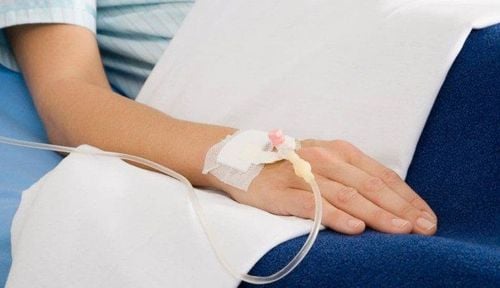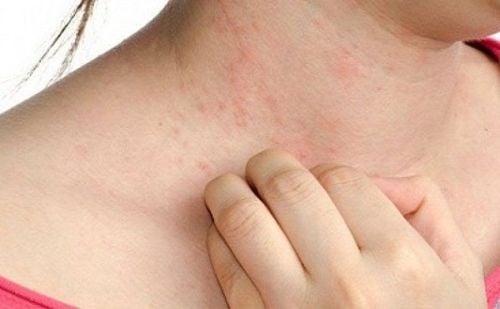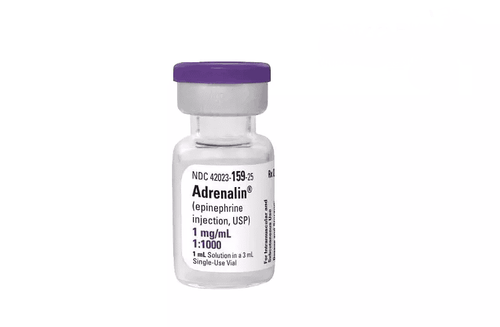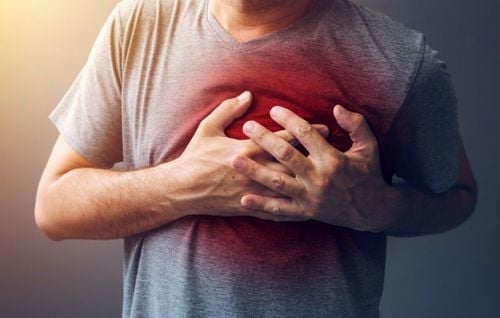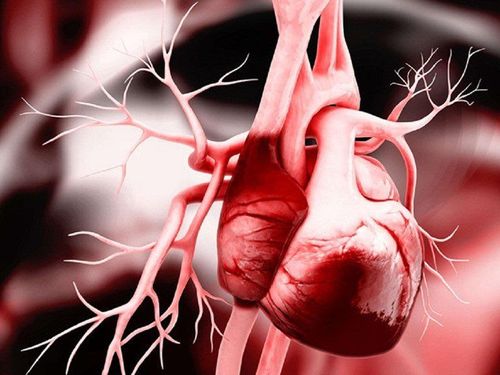This is an automatically translated article.
Articles written by MSc, BS. Le Thi Thanh Huong, Emergency Department - Vinmec Central Park International General Hospital
Most snakes are not dangerous to humans. Worldwide, only about 15% of snake species are venomous. The usual way to distinguish a venomous snake bite from a non-venomous snake bite is to look at the bite mark. The following article will guide first aid when bitten by a snake.
1. Signs of being bitten by a snake
Symptoms of a snake bite depend on the type of snake, but can still be identified through the following symptoms or signs:
Snake bite marks on the skin (poisonous snakes will have 2 venomous hooks) Redness, swelling, bruising, bleeding, or blisters around the bite Severe pain at the site of the bite Nausea, vomiting, or diarrhea Exhausted breathing (in many cases the victim may stop breathing) Tachycardia , weak pulse, low blood pressure Visual disturbances Increased salivation and sweating Numbness or tingling around the face and/or limbs Muscle twitches
2. How to give first aid when bitten by a snake
While waiting for help from the emergency medical unit, take the following steps:
Reassure the patient to stay calm, limit movement of the area that has been bitten by the snake (such as the arm, leg on the side that was bitten by the snake. ..) to help slow the spread of the venom throughout the body. Remove jewelry and tight clothing before you start to swell. If the patient has difficulty breathing, give artificial respiration (breathing or by medical means available in place such as balloon squeeze, portable ventilator, ..). If the victim shows signs of circulatory arrest, perform general resuscitation on the spot and wait for medical staff to arrive. Note when transporting the patient so that the bitten area is lower than the heart, if it is in the legs, arms, you can let the arms or legs hang....to limit the snake venom from moving to the heart and central circulation. Clean the wound with soap and water.
3. Be careful when giving first aid to snake bites
Some notes to avoid when giving first aid to snake bites include:
Do not use tourniquets, do not apply ice or soak the wound in ice water. Do not cut the wound or attempt to remove the venom. Do not drink caffeine or alcohol, which can speed up the body's absorption of the venom. Do not take pain relievers (such as aspirin, ibuprofen, naproxen). Don't try to catch the snake. Try to remember its color and shape so you can describe it, which will help with your treatment. If you have a smartphone with you, take a picture of the snake from a safe distance to help identify it, but don't waste too much time delaying emergency assistance. Do not apply bandages or soak the wound in water. Do not drink alcohol as a pain reliever. In all cases of snake attack, it is necessary to bring the victim to a medical facility as quickly and safely as possible. Treatment with specific antivenom and hospital monitoring must be carried out for at least the first 12 hours. If left for a long time, the treatment results will be very poor or ineffective.
According to doctors, performing first aid when being bitten by a snake in the wrong way has caused many deaths. Therefore, recognizing poisonous snakes and equipping them with knowledge on how to handle when bitten by a snake plays a very important role.
With areas near the hospital of Vinmec Health System that can immediately transfer patients to Vinmec hospital, the hospital always prepares enough human resources to deal with food poisoning, prevent further poisoning to act.
Vinmec International Hospital's Emergency Resuscitation Department operates 24/24 on all days of the week, including Saturdays and Sundays as well as holidays of the year. With diagnostic imaging equipment and Modern testing, especially specialized heavy-duty ambulances with a full range of supporting machines for severe patients traveling long distances in the subclinical field as well as in transporting serious patients on request. . The team of emergency doctors and nurses at the Emergency - Resuscitation Department of Vinmec International General Hospital are intensively and professionally trained, able to receive and handle urgent cases of patients, and at the same time always has coordinated with all specialties of the Hospital in a methodical and quick manner. At Vinmec Emergency and Resuscitation Department, patients will be examined, diagnosed, quickly and accurately treated and treated according to the priority of emergency until the critical condition is over.
Please dial HOTLINE for more information or register for an appointment HERE. Download MyVinmec app to make appointments faster and to manage your bookings easily.





